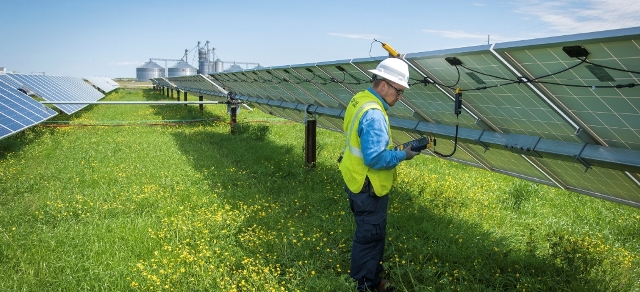Bank of America has selected Duke Energy to power its headquarters and other Charlotte operations with solar energy.
Bank of America is participating in Duke Energy’s Green Source Advantage (GSA) program through a renewable energy sleeved-power purchase agreement (PPA). The bank is the first company and financial institution to sign a 10-year agreement for electricity and Green-e certified renewable energy certificates (RECs) through this program, Duke Energy said in a statement.
The purchase of a 25-megawatt (MWAC) solar project’s electricity output and RECs will cover 45 percent of Bank of America’s electricity load in the state. Bank of America aims to cut its operational impacts on the environment, including being carbon neutral and utilizing 100 percent renewable electricity across its global operations.
“By driving more clean energy solutions in our facilities, we are developing a broader sustainable energy ecosystem to help transform our operations and the communities where our employees work and live,” said Andrew Plepler, global head of Environmental, Social and Governance at Bank of America.
This innovative project will be constructed in the Piedmont region of North Carolina. It also adds additional clean energy to the grid, supports jobs and the local economy. The project will include the installation of a pollinator habitat surrounding 70,000 solar panels, covering approximately 180 acres, and is expected to be online in 2022.
“We look for innovative ways to deliver more renewable energy to customers in North Carolina,” said Stephen De May, Duke Energy’s North Carolina president. “Customers want more flexibility and options for renewable energy and the Green Source Advantage makes that happen.”
Silver Pine Energy, a joint venture between Silver Creek Energy and North Carolina developer Pine Gate Renewables, will oversee the development of the project and will support the engineering, procurement and construction services, said Silver Pine President Ben Catt.
Duke Energy’s GSA program has 600 MW of capacity for large Duke Energy customers in North Carolina. Cities – like the city of Charlotte – are also eligible to participate.
Duke Energy maintains more than 3,300 MW of solar power on its energy grid in North Carolina, which could power about 700,000 home and businesses at peak output. The company also operates 40 solar facilities in the state. North Carolina currently ranks No. 2 in the nation for overall solar power.

